The in-person RAIL Robotics training for mentors, SHECodes KsTU & TTU, and regional STMIE coordinators closed with reflection marked by gratitude, honest feedback, success stories, and a collective resolve to sustain and scale the impact of the Responsible AI Lab (RAIL) and Artificial Intelligence for Sustainable Development (AI4SD) project.

In his remarks, Prof. Jerry John Kponyo, Principal Investigator of RAIL and Project Lead for AI4SD, called on participants to turn the training into real, demonstrable outcomes. “It is not enough to say I have learned; the real test is how you apply it. Show working,” he said, emphasising that the program’s ultimate success is its impact on students and communities. He challenged participants to return the right attitude of integrity, discipline, and excellence to their institutions.

The ceremony provided an open forum for feedback from RAIL Robotics mentors, SHECodes KsTU & TTU and regional STMIE coordinators, who praised the event’s organisation, the hands-on nature of the training, and the dedication of the facilitators. However, recurring concerns emerged, particularly about the limited toolkits and the need for continuous mentor training support.
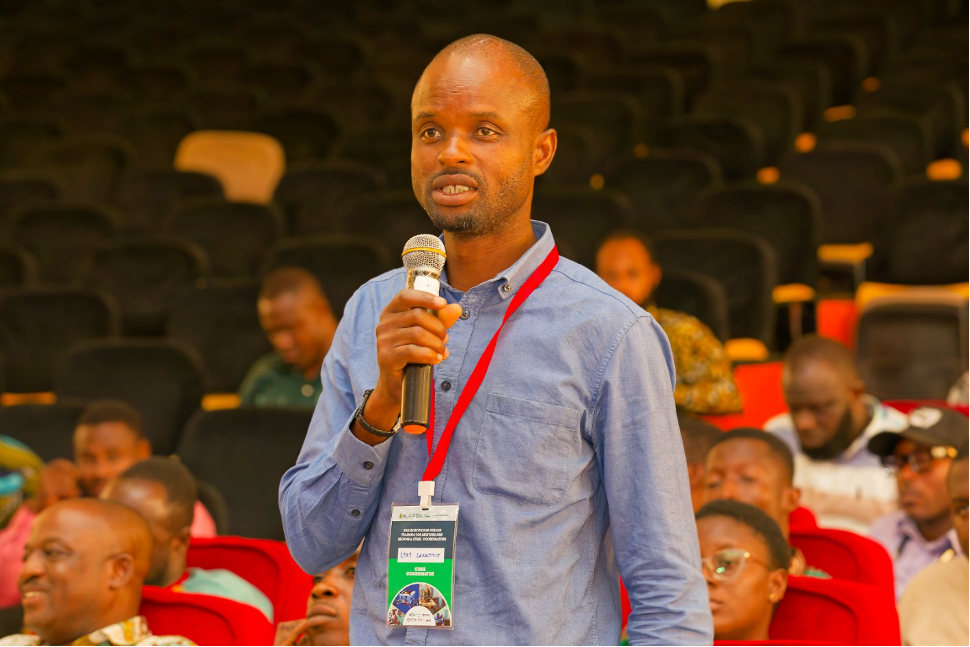
“We need more kits. Most of us couldn’t practice; we only observed demonstrations,” said one STMIE coordinator. Another suggestion was to allow schools to choose LEGO robotics or Arduino Robotics; alternatively, allow them to select both to prevent students from missing key aspects of the training. Mentors echoed the call for more resources and stressed the importance of post-training access to expert support when facing technical challenges in their schools. A participant also proposed that RAIL should collaborate with Yamoransa Model Labs to support with components and practical sessions for the schools within the community. Again, there was a repeated call for expanding the initiative to TVET Schools.

Others shared suggestions for sustainability, including forming a transition pipeline from SHS to university robotics clubs and integrating AI education into the national curriculum. One mentor summed it up by saying, “This program shouldn’t just stop here. Let’s connect the dots from JHS to SHS to tertiary to build something lasting.”

One of the highlights of the closing ceremony was the presentation by Dormaa Senior High School, the pioneering school of the RAIL Robotics Club. The team recounted their journey from humble beginnings, with only a single Arduino kit, to developing complex projects like automatic feeding systems, environmental monitoring tools, and traffic light prototypes. Despite challenges with student retention, power supply issues, and resource constraints, the team persisted, culminating in national recognition and multiple awards.
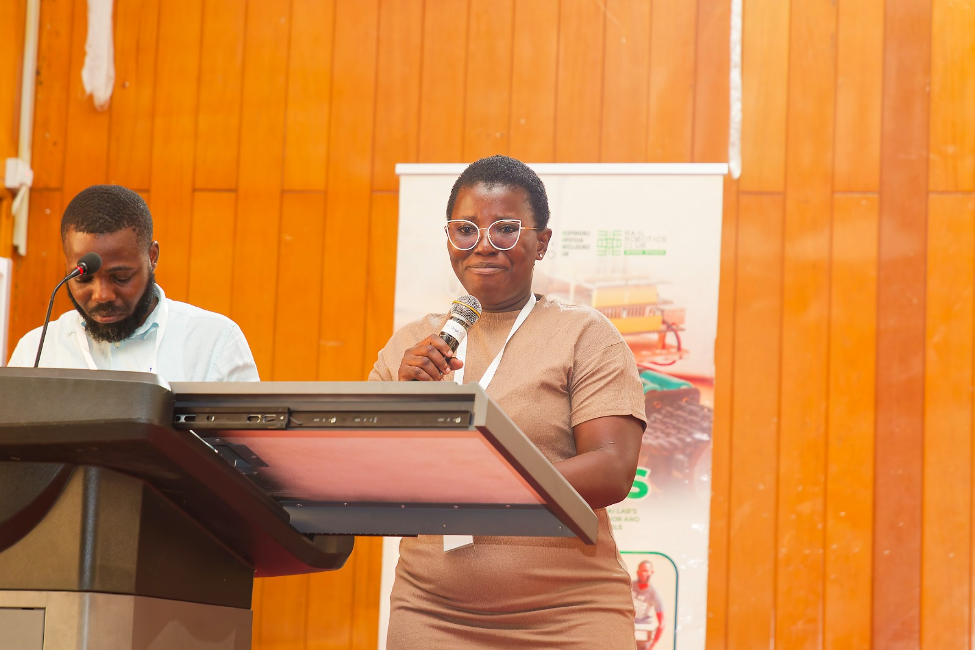
Representatives from Holy Child School shared their international experiences in global competitions and collaborating across cultures. “These events taught us to innovate under pressure and value diverse perspectives,” one representative said. They also highlighted the critical role of women in technology and advocated for inclusivity.
Their call to action was clear: “Never underestimate what your students are capable of. These young minds are full of innovation; it’s up to us to bring it out.”
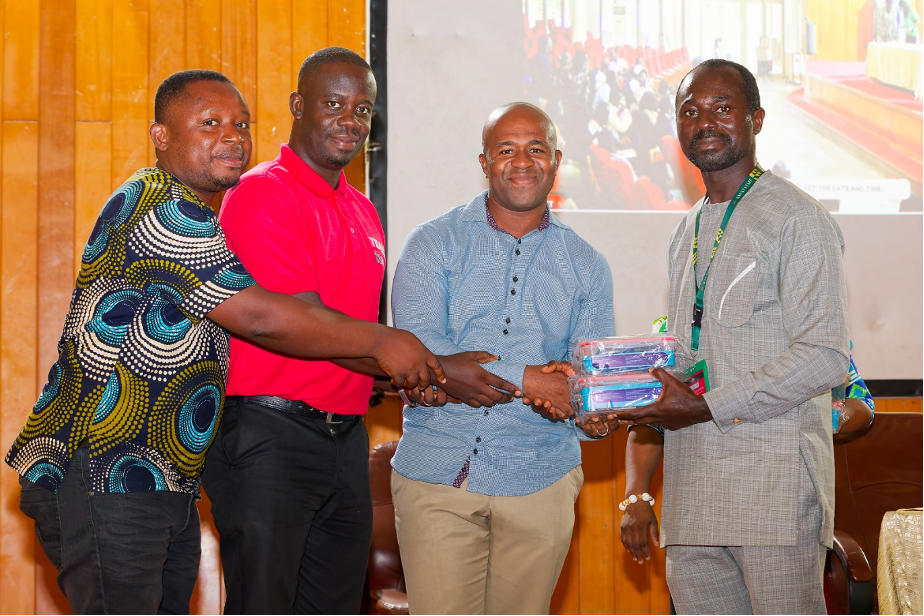
During the ceremony, toolkits were distributed to all 22 participating schools and SHECodes coordinators at three universities in response to the feedback.

Prof. Emmanuel E.A. Frimpong, Dean of the Faculty of Electrical and Computer Engineering, presented certificates to all participants.
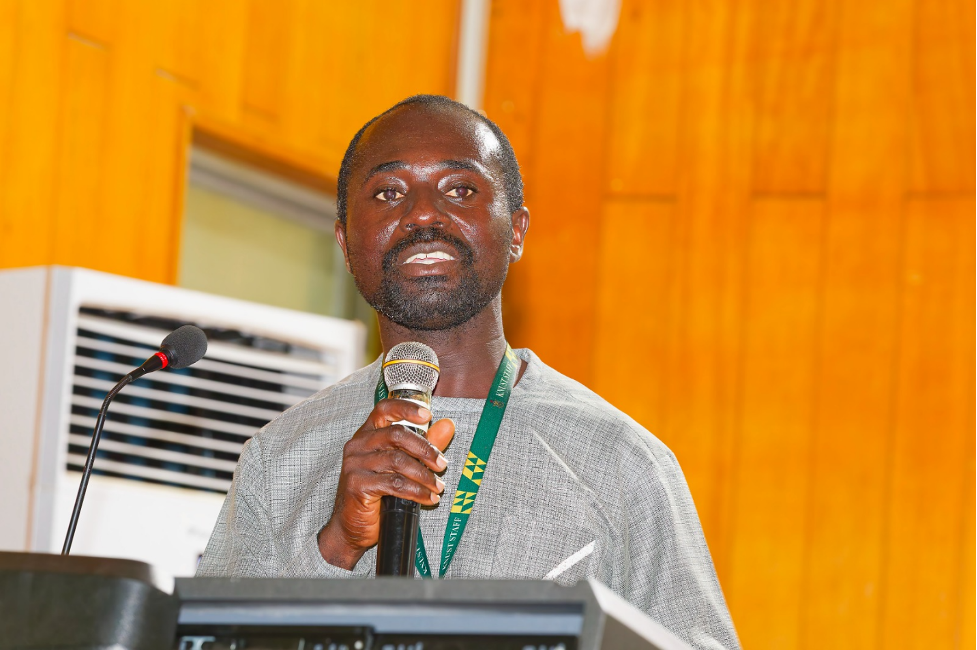
In his address, he cautioned against attending training without follow-through. “Too often, we take the certificates and bury everything. I hope this training leads to real knowledge transfer and sparks innovation in your schools.”
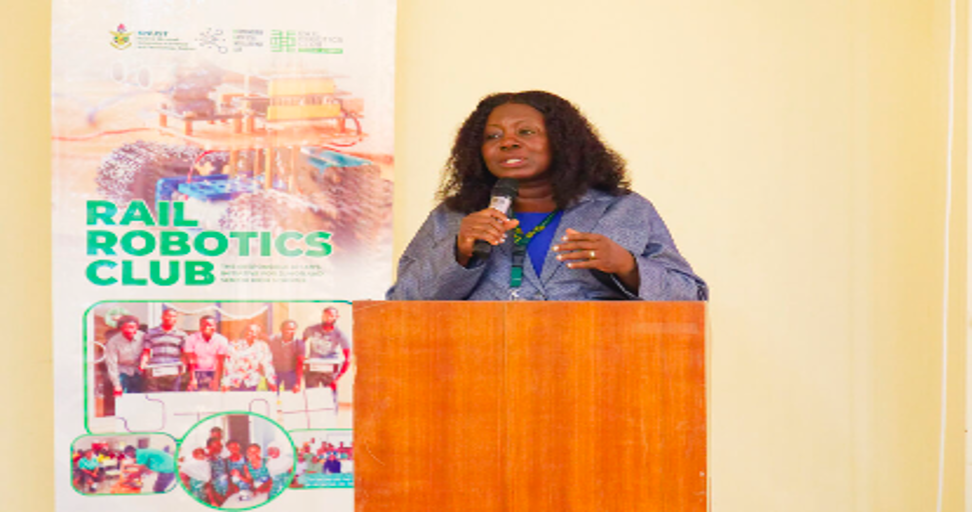
Dr. Eunice Akyereko Adjei, Theme Lead for AI in Education and Women in Technology, and Ms. Amina Salifu expressed profound gratitude to six categories of people who made the one-week training program a success. Great appreciation and heartfelt recognition were expressed to all the sponsors of AI4SD and RAIL Phase 2 (Artificial Intelligence for Development (AI4D), International Development Research Centre (IDRC), Foreign Commonwealth and Development Office (FCDO) and French Embassy in Ghana) and partners University of Cape Verde (UNICV) for funding this impactful initiative to empower learners for the 21st-century technological revolution.
Again, special appreciation to the Vice Chancellor, Provost of the College of Engineering, and the entire college management for their diverse support. Furthermore, thank you to the Director General of Education and the STEM Director, Mrs Olivia Opare, for collaborating with RAIL to implement the robotics initiative at the 22 schools across 10 regions in Ghana. Furthermore, a special thanks to Dr. Yaw Okraku Yirenkyi, Director of Studies at the Kofi Annan ICT Centre and Co-founder of the Ghana Robotics Academy Foundation, for giving a thought-provoking and insightful keynote address at the opening ceremony to inspire and encourage the participants in pursuance of excellence in stewardship of the club. Also, the STMIE coordinators, SHECodes Coordinators at the two new universities, Kumasi and Takoradi Technical Universities, and RAIL mentors at all the schools, for holding forth the initiative’s vision and being good club stewards. Further gratitude was expressed to Women in Technology and AI in the education team, facilitators of the training of trainers (ToT) Model, STEMAIDE Africa Limited, and all supporting organisers for their commitment and dedication to making this program a success. Finally, our most profound appreciation goes to the college’s technical, sanitation, and security team, the catering services at Engineering Guest House, and the Senior Staff Club for their diverse contribution to making the program successful. In her closing words, Dr. Eunice said, “Thank you for choosing to serve. Thank you for believing in the vision. Let’s keep going not just for today’s students, but for tomorrow’s Ghana.”